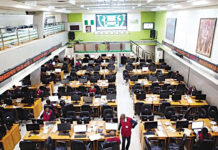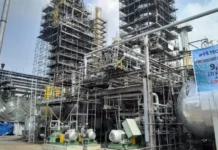The World Bank has recently approved financing worth $1.57 billion for Nigeria, aimed at enhancing critical sectors in the nation. This funding is intended to address governance issues in education and healthcare while bolstering climate resilience through improved infrastructure. The approval reflects the World Bank’s commitment to strengthening Nigeria’s human capital and tackling pressing challenges faced by its citizens.

The funding is divided among three major initiatives targeting essential improvements in governance and health.
The first project, HOPE-GOV, will receive $500 million to enhance governance in the education and health sectors. An additional $570 million is allocated to the Primary Healthcare Provision Strengthening Program (HOPE-PHC). The remaining $500 million will support the Sustainable Power and Irrigation for Nigeria Project (SPIN).
The HOPE-GOV program aims to tackle governance issues that have affected service delivery in education and healthcare. This initiative seeks to improve transparency and accountability, ensuring that vital services reach vulnerable populations. By addressing underlying management challenges, the program hopes to create a more efficient system that prioritizes the needs of citizens, especially the most disadvantaged.
HOPE-PHC focuses on enhancing Nigeria’s healthcare system for women, children, and adolescents. With funding aimed at reducing maternal and under-five mortality rates, the program will provide essential health services to improve overall community wellness. An estimated 40 million Nigerians are expected to benefit from expanded access to reproductive, maternal, and child health services.
The SPIN project is crucial for addressing climate-induced challenges such as floods and droughts in Nigeria. By improving dam safety and water resource management, it aims to enhance agricultural productivity through more reliable irrigation systems. This project will directly benefit approximately 950,000 people, including farmers and livestock breeders, promoting sustainable agricultural practices.
This financing not only aims to improve infrastructure but also seeks to safeguard the livelihoods of those impacted by climate change. By investing in sustainable practices, the SPIN project fosters resilience against environmental challenges, ensuring food security and enhancing productivity in the agricultural sector. These developments play a vital role in the overall economic stability of the nation.
Dr. Ndiamé Diop, the World Bank’s Country Director for Nigeria, emphasized the importance of investing in health and education as a means to boost future employment and reduce poverty. This new financing package is designed to directly address the barriers faced by women and girls in accessing quality services. The initiatives promise substantial positive impacts, ultimately enhancing the livelihood of many Nigerians.



